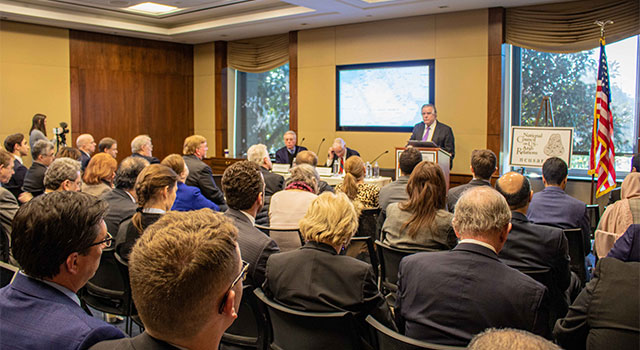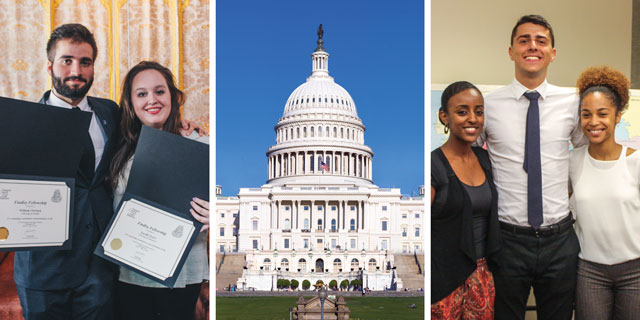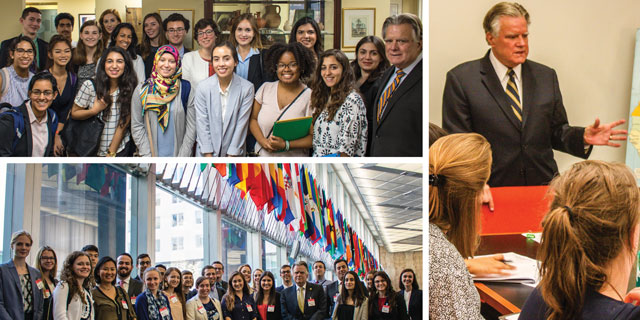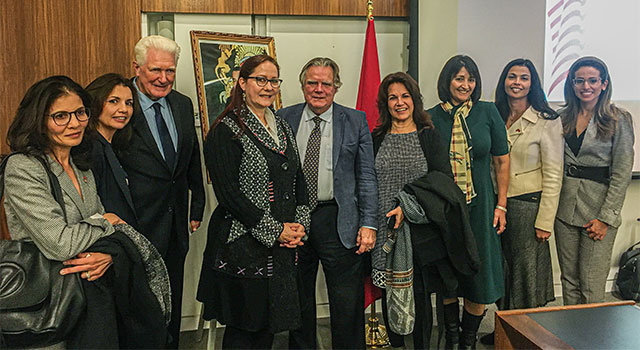On January 9, 2020, the National Council on U.S.-Arab Relations hosted a public affairs briefing on Capitol Hill in Washington, D.C., focused on “Strategic Dynamics of Iran’s Continuing Asymmetric Warfare: What Implications for the United States and the Region?”

The National Council on U.S.-Arab Relations January 9, 2020, Public Affairs Briefing examined strategic dynamics related to Iranian asymmetric warfare, and their implications for the region as well as the United States.
The featured specialists included:
- Mr. David Des Roches, Senior International Affairs Fellow, National Council on U.S.-Arab Relations; Associate Professor, Near East/South Asia Center for Strategic Studies, National Defense University, U.S. Department of Defense.
- Dr. Anthony H. Cordesman, Center for Strategic and International Studies Arleigh A. Burke Chair in Strategy; Consultant to the U.S. State Department, Defense Department, and intelligence community; Former Office of the Secretary of Defense Director of Intelligence Assessment.
- Dr. Thomas Mattair, Middle East Policy Council Executive Director; Author of The Three Occupied UAE Islands: The Tunbs and Abu Musa and Global Security Watch – Iran: A Reference Handbook.
- Dr. John Duke Anthony, National Council on U.S.-Arab Relations Founding President and CEO; Former U.S. Department of State Advisory Committee on International Economic Policy Subcommittee on Sanctions Member; only American to have been invited to each of the Gulf Cooperation Council’s Ministerial and Heads of State Summits since the GCC’s inception in 1981.
A podcast recording of the program is available below along with slides from several of the speakers.
“Strategic Dynamics of Iran’s Continuing Asymmetric Warfare” podcast (.mp3)
Slides from Mr. David Des Roches – “The Iranian Way of (Near) War” (.pdf)



![[Top and Left] Inlaid Islamic niches at the Grand Mosque in Oman’s Capital Territory. [Bottom and Right] Bedouin Omani girls in the Sharqiyyah Sands.](https://files.constantcontact.com/f0254e99301/251807c3-c02d-4df5-9bc4-f85485e3ba1b.jpg)




You must be logged in to post a comment.